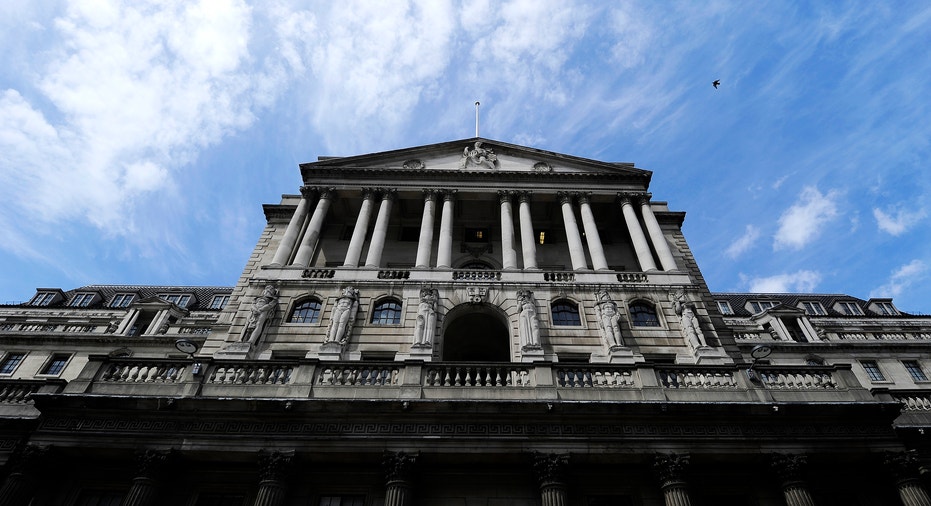BoE Leaves Interest Rates Unchanged

The Bank of England left its main interest rate unchanged Thursday as lower oil prices push the inflation rate further below its target, despite continued strong economic growth and falling unemployment.
The BOE said in a statement that its rate-setting Monetary Policy Committee opted to leave the central bank's benchmark interest rate at 0.5% at its February meeting. The nine-member panel also chose to keep the size of the BOE's bond portfolio at GBP375 billion ($567 billion).
The U.K.'s annual rate of inflation fell to 0.5% in December from 1.0% in November, and probably eased further below the BOE's 2.0% target in January. The European Commission Thursday said it now expects consumer prices to rise 1.0% during 2015, having previously forecast inflation of 1.6%.
BOE forecasts show it could take until late 2017 to bring inflation back to target, despite predictions of healthy growth and a further decline in unemployment.
The commission said it expects the U.K. economy to grow 2.6% in 2015 and 2.4% in 2016, a more rapid expansion than it projects for other large European nations, such as Germany, France and Italy. It also forecast that the unemployment rate will fall to 5.6% this year and 5.4% in 2016.
Surveys of purchasing managers released earlier this week pointed to a strong start to the year for the U.K. economy. The January purchasing managers index for the services sector rose to 57.2 from 55.8 in December, with a reading above 50.0 signaling an increase in activity. The survey also found that service providers hired new workers at the second-fastest rate in the survey's history.
But despite strong growth in output, businesses reported only marginal increases in the prices they charged customers, an indication that the U.K.'s inflation rate won't soon start to rise towards the BOE's target.
Other central banks are also battling feeble price growth. The European Central Bank last month launched a program of quantitative easing, pledging to buy more than EUR1 trillion ($1.14 trillion) of government and other bonds between March of this year and September of next.
But while welcomed by the BOE, that stimulus program has weakened the euro's exchange rate against sterling, a development that will probably retard U.K. exports to its largest overseas markets.
Policy makers are also wary of the potential for a renewed debt crisis in the currency area should other eurozone members prove unwilling to meet demands from the new Greek government for an easing of the terms of its bailout program.
In a sign of his growing frustration with the damaging impact of the eurozone's long slump on the U.K. economy, BOE Governor Mark Carney last week urged officials in the currency bloc to foster stronger growth by deepening the fiscal ties between member states.
Investors expect the BOE to keep its main interest rate on hold until early 2016, according to overnight lending rates that track the BOE's benchmark. The Federal Reserve is expected to raise short-term rates in the U.S. in the middle of the year.



















